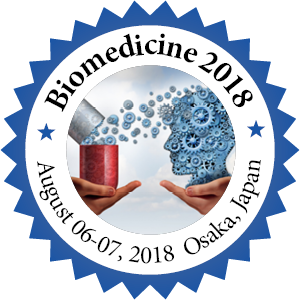
Ian J Martins
Edith Cowan University, Australia
Title: Antimicrobial drugs and bacterial amyloid beta peptide induce toxic manifestations to medical biology and pharmacotherapy
Biography
Biography: Ian J Martins
Abstract
Statement of the Problem: The global problem of antimicrobial resistance is particularly relevant to the developing countries where infectious disease and costs have accelerated. Management of infectious disease has been critically compromised by the appearance and rapid spread of antibiotic resistance. Antimicrobial is an agent that kills microorganisms or inhibits their growth. Antibiotics are used either against bacteria or antifungals against fungi with the global antibacterial market to cost the global community 36 billion dollars. Antimicrobial agents such as antibiotics destroy microorganisms in the body by targeting bacterial cytoplasmic membranes but the debris from the bacteria such as gram negative organisms may release Bacterial Lipopolysaccharides (LPS) and amyloid peptide into the blood plasma.
Method: In previous experiments by various laboratories novel information has been provided that indicates brain and liver human amyloid beta metabolism is integrated and interference with the amyloid peripheral sink clearance pathway leads to cellular senescence and neuro-degeneration. The release of bacterial amyloid peptide from microorganisms needs to be carefully considered with relevance to corruption of the amyloid peripheral sink clearance pathway with relevance to pharmacotherapy in man.
Finding: Hepatic drug metabolism needs to be assessed with relevance to the global non-alcoholic fatty liver disease epidemic that is associated with complete inactivation of drug metabolism and antibiotic resistance. Antimicrobial agents that inhibit microorganism growth needs to be carefully consumed early to prevent excessive LPS and bacterial peptide release associated with amyloid beta oligomer formation and cell apoptosis.
Conclusion: A healthy diet and early antimicrobial drug/peptide therapy is essential to prevent toxic manifestations with relevance to bacterial amyloid peptide induced oligomeric amyloid beta toxicity to cells. Antibiotics/antimicrobial therapy used either against bacteria or against fungus is of concern with antibiotic resistance expected to cost the global antibacterial market approximately 36 billion dollars by the year 2022.

